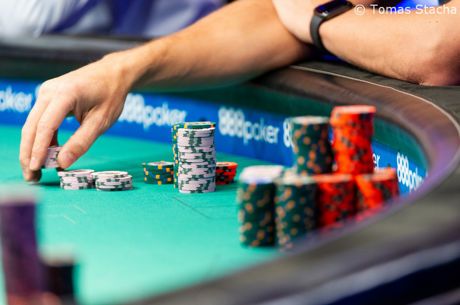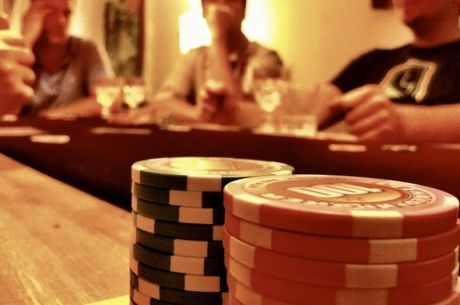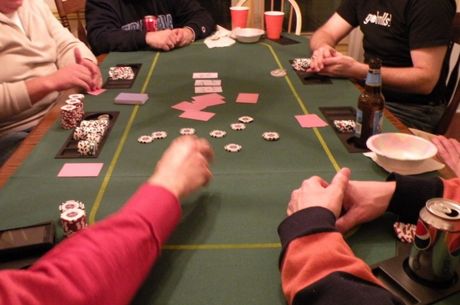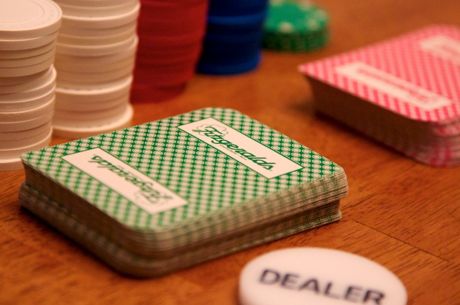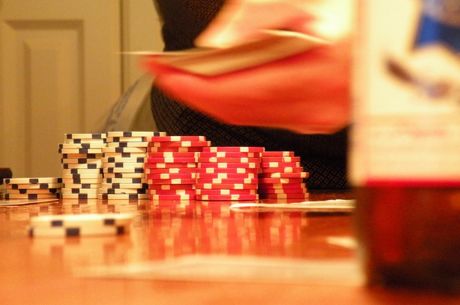Home Game Heroes: Upending Conventional Poker Wisdom About Home Games

I have an extensive poker library — some 600-plus volumes. There are many excellent texts among them, most having to do with poker (especially hold’em) as it is played in casinos. But many of them were written before casinos proliferated, and therefore they deal more directly with the topic of home game poker.
Sadly most of these books, though attempting to help the regular Joe hold onto his money, are filled with very bad if well-intentioned advice. There are just some terrible books among them, too. It seems that over the years many people have liked to write about poker, including many who didn’t know what they were talking about.
I’m not sure if it can be said that a kind of generally accepted poker wisdom infected these books about home game poker — with the authors doing little but transmitting in writing what was common knowledge of the time — or if some of these writers actually came up with these ideas on their own. But for whatever reason, much of the advice contained within them has been passed down to the current day in such a way that even otherwise sophisticated players have adopted many of these bad ideas as their own.
Unfortunately, even though this “conventional” poker wisdom often seems to make good sense to home game players, it is often wrong. In this and the next few columns I will take on this conventional wisdom about home games, exploring why it is often better to ignore it and sometimes even better to violate it completely.
Here are a few examples of what I am referring to as conventional poker wisdom about home games:
- Don’t play with strangers
- Set a start and end time for your home game and stick to it
- Never play with “scared” money
- Avoid wild card games as they favor luck over skill
All seem to make some sense, even today — especially to the typical home game player who might be more concerned with having a good time while protecting his bankroll. Let’s look at each in turn, and see why they have become widely disseminated and accepted.
1. Don’t play with strangers
This seems to make sense because strangers represent possible risks. You know your friends are honest and fair, but you don’t know whether a stranger may be a cheat or a card shark. The prudent route is to avoid him — stick to playing with players whom you already know and can trust.
2. Set a start time and end time and stick to it
We all know what can happen toward the end of a poker game. A player who is stuck will try to keep the game going, while the winners want to go home to protect their profits. This can cause arguments, which in turn makes the game stressful and less fun. Better to avoid such arguments and make it clear from the start exactly when the game will end. Though the losers may grumble, they’ll thank you in the morning.
3. Never play with “scared” money
We all know how uncomfortable it can be to play in a game that is “over our heads.” You are afraid of losing money you can’t afford to lose. If the stakes are too big, you may well be acting out of fear rather than proper strategy. This can only hurt your ability to make money in the game and will probably lead to a depleted bankroll — something you want to avoid if at all possible.
4. Avoid wild card games as they favor luck over skill
If you’re a serious poker player you want to play those games that are primarily “skill-based.” Since wild cards lend a bit of randomness and uncertainty to the game, they make the game less skillful. As such, they should be avoided in favor of the serious poker games that you, a skillful home game player, will want to have.
All four of these bits of conventional wisdom about home games do seem to make sense, and arguments in their favor are persuasive as well. They also each have elements of truth in them that you may want to consider.
Even so, I’m going to suggest that as general rules of thumb they are almost entirely wrong — best followed in their breach, as I will show you in the next few articles.
I’ll let you consider — and debate in the comments, if you like — each of these pieces of advice about home games for yourselves for now. Then in coming weeks I’ll explain...
- Why you SHOULD play with strangers
- Why you SHOULD keep the game going so the loser can get back to even
- Why you SHOULD play over your head
- Why you SHOULD play wild card games
Photo: Shad Bolling. Creative Commons Attribution 2.0 Generic.
Ashley Adams has been playing poker for 50 years and writing about it since 2000. He is the author of hundreds of articles and two books, Winning 7-Card Stud (Kensington 2003) and Winning No-Limit Hold’em (Lighthouse 2012). He is also the host of poker radio show House of Cards. See www.houseofcardsradio.com for broadcast times, stations, and podcasts.
Want to stay atop all the latest in the poker world? If so, make sure to get PokerNews updates on your social media outlets. Follow us on Twitter and find us on both Facebook and Google+!





